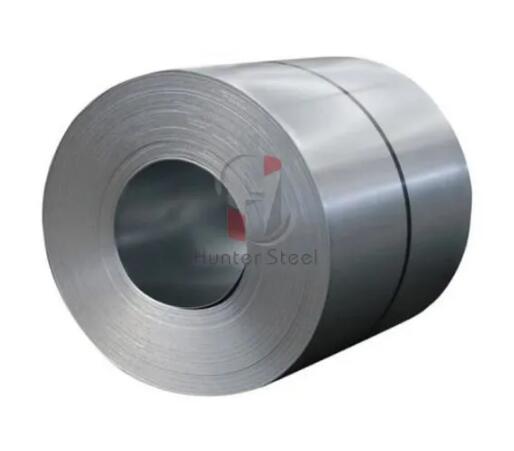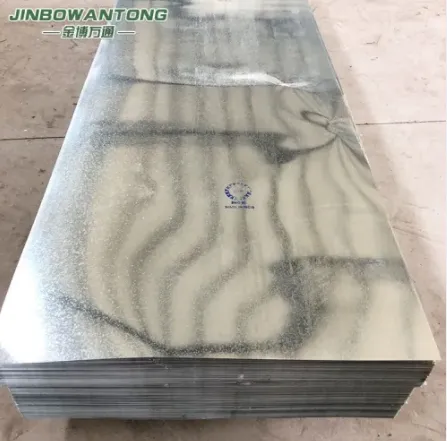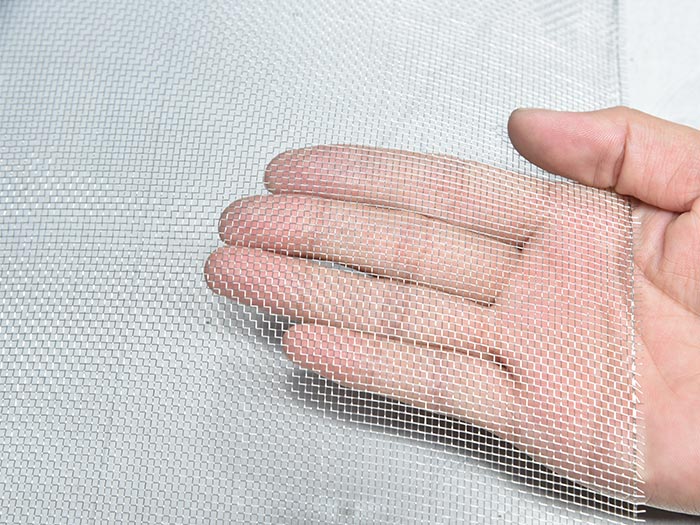Pros and Cons of Quartz Countertops
Last Updated On
Quartz Slabs became quite popular lately due to their durability, and stain resistance. You can find a variety of different colors and designs which are mostly not available in natural stone countertops. There are some disadvantages too. Before diving into the details, we have to understand what quartz is.
What is quartz?
Quartz is a relatively new manmade artificial surface covering material. Harder stones like granite consist of quartz. Quartz raw material is found in nature. While quartz is very abundant in nature, there are some famous quartz crystals such as Indian quartz, Brazilian quartz, and American quartz.
Quick Look
Aquarella Macauba Polished Quartzite Slab
Size: Random 1 1/4
Stock: In stock
Story of Quartz Countertops
Due to the popularity of quartz countertops, some American and European producers came up with taking this abundant raw material, mixing it with resin, and pouring slabs out of it. Breton machinery company in Italy was one of the pioneers of this technology and eventually, it evolved into one of the most popular kitchen countertop materials in the world.
Quick Look
Belvedere Leather Quartzite Slab
Size: Random 1 1/4
Stock: Currently unavailable
Quick Look
Moulin Rouge Polished Quartzite Slab
Size: Random 1 1/4
Stock: In stock
Quick Look
Green Fire Leather Quartzite Slab
Size: Random 1 1/4
Stock: In stock
How Quartz Kitchen Countertops are Made?
Quartz is a cheaper alternative to natural stone such as marble countertops and granite countertops. There are good and bad manufacturers of quartz slabs and it is difficult to distinguish which is a good quartz and which is not. In addition to quartz chips, quartz countertops consist of resin, an artificial form of plastic. Some manufacturers put as much as 15% resin in quartz countertops. Contrary to popular belief bad quality quartz eventually scratches and can burn.
Main Quartz Manufacturers
Oki quartz from Italy, Stone Italiana quartz, and Silestone are some of the earlier players with a variety of colors and textures. Eventually, Ceaserstone and Cambria became some of the mass manufacturers.
Available Varieties
Quartz slabs come polished or honed. In addition chip size and color can also vary as well as veins. Basic colors such as white quartz are very popular in apartment building kitchen countertops.
Some of the veined quartz countertops are made to look like popular Italian marbles such as White Carrara and Calacatta marble. These veins are mostly handmade in China and can look artificial. Technology is still limited and veins are repetitive.
When creating your home, you want a stone that accents your color scheme and lifestyle. Quartz is one of the only countertop materials that has the flexibility to be personalized to your style. Marble Systems Quartz Slabs has a wide variety of quartz colors while remaining low maintenance, making the creation of the space of your choosing unique and timeless.
As quartz is an engineered material, there are many different quartz variations of color, pattern, and shade, while remaining less costly and more long-lasting than other surface-covering materials. Most quartz manufacturers have a large assortment of different colors of quartz from black and bronze to white and cream leaving plenty of room for the buyer’s preferences.
Popular applications
The most common areas of use for quartz countertops are budget apartment buildings, budget hotels, and senior housing. Most developers want an inexpensive alternative to relative material stones, such as marble or granite for countertops. Primarily, the quartz product is used on countertops but has other uses as well.
Quartz can be featured on walls, and custom tabletops, and used for backsplashes, leaving the applications of quartz within the realm of interior design to be endless. When looking for an accent wall or unique addition to a home, apartment, or hotel, quartz remains a solid choice if the focus is on affordability, upkeep, and customization. These various applications have the ability to be altered to complement the color scheme and chosen look for the space.
Advantages and Disadvantages
There have been reports of health concerns in quartz countertop manufacturing. A recent NPR report referred to the health hazards of making quartz tops. Now let’s check the advantages and disadvantages of quartz countertops. Quartz countertops are relatively stain-free and easier to maintain those are the principal advantages.
However, they can become quite boring and also scratch and stain after a long period of time. Veins in quartz countertops can look quite artificial and repetitive after several slabs. Also if you’re doing a kitchen island, it is quite difficult to have the veins match in a natural-looking way. One of the biggest problems of quartz countertops is it is difficult to make edges look natural and veins go all the way through.
Advantages of Quartz Countertops
As a result of quartz being man-made, this covering material offers many more stylistic options than other natural stones. The varieties of quartz options span from colors to designs differing from compared to countertop materials. High-quality quartz not only provides an array of options for each and every style but can also look just like the more expensive stones.
When shopping for a key feature in a new home, seeing what you get is imperative for us all. Since quartz is an engineered material, there is an everlasting consistency. Just like snowflakes, natural stones are never exactly alike. Therefore, when ordering multiple slabs of natural stone, the purchaser could be surprised by the differences when focusing on the details, but this is not the case with quartz. What you see, will always be what you get.
Additional reading:Hastelloy Clad Plate: The Perfect Fusion of Strength and Corrosion Resistance
Are There Different Types of Aluminum Coils?
What are the difference between ball bearings and roller bearings?
What are the advantages of using galvanized steel coils?
What To Consider When Choosing Business Trash Cans
Sintered Porous Metal Stainless Steel Discs: Versatile and Reliable
The Essential Guide to Drill Pipe: What You Need to Know?
Quartz countertops are non-porous and easy to maintain. Cleaning quartz surfaces is as easy as can be as the material can stand everyday staining sources without leaving a mark. Quartz countertops are also much more sanitary with their non-porous composition, making them a healthy, yet trendy, addition to everyday kitchens and bathrooms.
For everyday buyers, maintaining a budget is necessary. Quartz can maintain just as high quality and looks of natural stone options while staying more cost-effective. Unlike granite or marble, quartz does not need to be resealed annually, overall saving money in the future as well.
Disadvantages of Quartz
Finding the perfect quartz countertop match can become very timely. As a result of quartz availability, it takes a lot of shopping in order to find the right cost, style, and quality to fit the buyer’s needs.
Although quartz countertops are primarily stain-resistant, they are susceptible to damage from sunlight leading to dulling and staining. When using quartz, the buyer’s everyday life is managed with caution as to the placement of hot pans or heated hair stylers. Over time, this so-called ‘indestructible’ surface can scratch and slowly change to a color and texture it was not originally bought as.
As an engineered product, quartz also has cons to this factor. Man-made veins can become overwhelming in a large area, especially the chance that multiple slabs could make the countertops look artificial. The size limitations of quartz, compared to the lack of size limitations in granite and natural stones, can restrict the amount that the veins go along the surface, making it look all the more engineered, rather than natural.
Difference Between Quartz vs Quartzite
In this article, we mostly focused on Quartz which is a man-made stone. You may have heard of Quartzite as well and may be wondering about the differences between the two. At Marble Systems, we have also Quartzite slabs that are suitable for kitchen countertops. The main difference is as we said before; quartz is a man-made, engineered stone that was reinforced with chips, resin, and pigments. Read our Quartz vs. Quartzite Countertops: Which is Best for Your Home? blog post to see all differences.
Quick Look
Antartide Leather Soft Quartzite# Slab
Size: Random 1 1/4
Stock: In stock
Quick Look
Brown Fantasy Polished Soft Quartzite# Slab
Size: Random 1 1/4
Stock: In stock
Quick Look
Corteccia Polished Soft Quartzite# Slab
Size: Random 1 1/4
Stock: Currently unavailable
On the other hand, Quartzite is originally a sandstone, a metamorphic rock, it is completely natural. It is extracted from quarries and then cut into slabs to be used as mostly kitchen countertops. It is somewhat similar to natural stones like marble and granite. Because it is porous and must be sealed periodically, while quartz is non-porous and it doesn’t require any sealing.
Finally, we can say that both quartz and quartzite countertops are very beautiful. Their price points are very close to each other. They are good alternatives to marble or granite countertops in terms of pricing.
Choosing the countertop for your newly remodeled kitchen or bathroom is a lot of fun! However, it’s also serious business — after all, it’s a major investment. It’s also a commitment that could last 25 years or more, if you choose quartz countertops or another quality option. That’s why it’s so important to weigh the pros and cons of each option before making that big decision.
Quartz is one of the most popular choices for today’s countertops, as it’s a high-quality, luxury material. Unlike other luxury surfaces, quartz is an engineered slab. This opens up a new world of possibilities in form and function! Quartz countertops are tough and durable, and have many characteristics that busy families will appreciate. No material is perfect, though. It’s important to consider both the benefits and limitations, so you can be confident you’ve chosen the right countertop for your lifestyle and taste.
Pro: Consistency in Appearance
Quartz countertops are manufactured surfaces made with real quartz crystals, along with other minerals and pigments, bound together with a resin. Therefore, each piece looks the same. When you choose a quartz countertop, you can be assured that the countertop that is installed in your kitchen or bathroom will look just like the one you saw in the showroom. This isn’t the case with natural materials like marble or granite. Patterns and colors, such as the veins in natural marble, can vary considerably between slabs. To get exactly the look you want, you need to go to the slab yard and select the actual piece you wish to buy. Otherwise, the end result could look markedly different than what you had in mind.
Pro: Durability
When you install a quartz countertop, you’ll be getting an extremely strong, tough surface material that can stand up to decades of use by your busy family. It’s resistant to scratches and chips, and since it’s waterproof, it also resists stains and water damage. In fact, this is one of the biggest reasons people choose quartz countertops. They are not completely indestructible — you should still use cutting boards, wipe up spills quickly, and use trivets to protect against hot pans and dishes. Because of the durability of quartz countertops, manufacturers issue generous warranties against manufacturing defects and damage.
Fossil Gray Quartz
Pro: Low Maintenance
When selecting a countertop, one of your most important questions should be this: How much work will it take to maintain? Natural stone countertops range in difficulty when it comes to keeping them looking their best, but all need to be sealed on a regular basis. Without sealing, stone countertops are porous and prone to water damage and stains. Quartz doesn’t have this problem. It never needs sealing — it’s always waterproof and nonabsorbent. Natural stone countertops also need special cleansers, with a neutral pH, which are formulated specifically for that purpose. With quartz, any nonabrasive, mild cleanser will do.
Con: Price
Quartz countertops are luxury options. They typically cost more than natural stone countertops. However, the cost of alternatives such as granite or marble varies widely depending on many factors — its rarity, the distance it travels from the quarry, and its quality just to name a few. When deciding between quartz vs. granite, remember that high-end natural stone can cost much more per square foot than quartz.
Calacatta Bali Quartz
Con: Contemporary Look
As a modern, manufactured surface, quartz countertops are associated with contemporary styles of décor. They’re an ideal match, since they can be manufactured in virtually any color, such as solid black quartz, or with subtle, consistent patterns. If you prefer a traditional or rustic aesthetic for your home, you may lean toward the elegant look of marble, granite, soapstone, or other natural material. Many homeowners prefer the variability of natural stone’s veining, coloration, and movement. Keep in mind, however, that quartz countertops are made to authentically resemble natural surfaces like fine Italian marble, allowing you to have the best of both worlds: Elegant looks and super-easy care.
Con: Heat Resistance
In busy kitchens, accidents happen — like placing a hot pot or pan directly on the countertop surface. For some countertops, such as laminate, that would be a disaster. Quartz countertops are somewhat heat resistant, but at very high temperatures the resins that bind the quartz crystals may discolor. If heat resistance is a top priority for you, a natural stone countertop may be a better choice, although stone surfaces can also be damaged by excessive heat. No matter which countertop you choose, get into the habit of using hot pads and trivets.
Calacatta Karmelo Quartz
Con: Weight
Another drawback to quartz countertops is their weight; they can weigh between 20 to 25 pounds per square foot. For this reason, installation is not a DIY project. It’s best left to the pros. Cabinets and even flooring may need additional reinforcement and support to handle the weight of the quartz slab. However, by comparison, natural stone countertops such as granite can weigh just as much, if not more.
Con: Indoor Use Only
Outdoor kitchens and bars have become a popular trend, and it’s important to select the right countertop for this purpose. Unfortunately, quartz countertops are recommended for indoor use only. The main reason is that the resins that bind the countertops can fade or discolor in direct sunlight. In fact, this can happen even indoors beside a sunny window. Granite, slate, and other natural stone countertops are a much better fit for your outdoor living spaces.
As you can see, there’s a lot to love about quartz countertops, but they aren’t an ideal fit for everyone. The price may be on the high side, but the low maintenance and long warranty can make up for it. When considering drawbacks like weight, heat resistance, and appearance, remember that there may not be much difference between quartz countertops and natural stone. Every type of countertop surface has its pros and cons, and only you can decide the one that best fits into your home and your life.
Ready to find your perfect quartz? Chat with us online, visit an MSI showroom, or contact an MSI authorized retailer and start your quartz countertop journey today.
More About Quartz Countertops
Are Quartz Countertops Stain Resistant
Move Over Concrete Counters This is a Job For Quartz Countertops
7 Must See Quartz Countertops That Look Like Natural Stone
Best Ideas for Quartz Countertop Vanities
You May Want to Choose a Quartz Countertop Over Marble After Reading This
Pros and Cons of Quartz Countertops
Do You Really Want Quartz? We Can Help You Decide!
Additional reading:The Journey from Bauxite to Brilliance: Unveiling the Production of Aluminum Coils
Somthing you need to know about safety wire?
Double Wire Mesh Fence vs Chain Link Fence: Which One Reigns Supreme?
Frequently Asked Questions about Galvanized Corrugated Steel Plate
Which black color is the best?
Hot Rolled Steel vs. Cold Rolled Steel
What are the advantages of corrugated roofing sheets?





